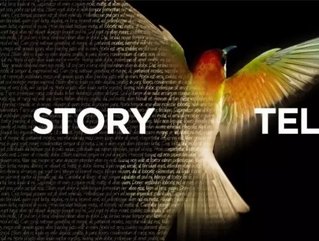The Top 10 Books Every Storyteller (and Marketer) Should Read

I'll argue (and win) any day that the best marketers are also storytellers. It’s the marketer’s job to evoke an emotional connection between product and consumer, to stimulate both the minds and hearts of potential customers.
The essence of marketing IS storytelling. At the core of every good story is theme, an idea to interject into humanity’s collective consciousness. And every good product has a theme.
As storytellers, we learn best from other storytellers. We learn from them by reading their guidance on how to construct stories, create compelling characters and write dialogue that pops off the page. We learn from them by reading the stories that they write that show — in action — exactly how to do these things.
If you are serious about being a storyteller, there are some books that you absolutely should read to better understand and implement your craft.
1. The Writers Journey: Mythic Structure for Writers, 3rd Edition
This powerful book explores the relationship between mythology and storytelling. The book uses allegory to break down the basic narrative structures and character archetypes for any story. Whether you are a screenwriter, a playwright, or a novelist, you can use this book to crystallize your story and to strengthen it.
2. The Hero with a Thousand Faces (The Collected Works of Joseph Campbell)
This oft-referenced guide explores the monomyth, or the hero’s journey, and is the source material for Vogler’s book. Campbell pulls together myths from different eras and regions to discover the underlying narrative structures that form the hero’s journey. Though the book is quite dense, it is worth the read as it will give you a foundation for story structure that you can use in any narrative.
3. Story: Substance, Structure, Style and the Principles of Screenwriting
This is the bible for screenwriters. McKee uses this book as the basis for his workshops, which have garnered international acclaim and graduated alumni like Diane Keaton, Gloria Steinem, and Julia Roberts. Learn how to craft rock-solid screenplays that sell with this master guidebook.
4. Telling True Stories: A Nonfiction Writers’ Guide from the Nieman Foundation at Harvard University
You don’t have to write fiction to tell a powerful story. Memoir, biography, history, and true crime all have the potential to become classic stories that influence generations to come. This book brings together tips from some of the top journalists, non-fiction writers and screenwriters in the industry, including Tom Wolfe, Malcolm Gladwell, and Nora Ephron.
5. The Screenwriter’s Bible, 6th Edition: A Complete Guide to Writing, Formatting, and Selling Your Script (Expanded & Updated)
Learn everything you need to know about how to write and sell a winning script. One of the most authoritative books on screenwriting, you will learn everything from story structure to page layout in this guide. There is even a list of resources, including industry contacts.
6. A Poet’s Guide to Poetry, Second Edition (Chicago Guides to Writing, Editing, and Publishing)
Mary Kinzie is a poet and the director of the creative writing program at Northwestern University. This guide explores everything you need to know about poetry, including formal analysis, the craft of writing, and even how to read poems.
7. The Art Spirit
The construction of a painting is similar to the work of crafting a narrative. Each is built in complex layers that build upon and inform one another, creating a rich, multi-faceted picture. This book offers guidance and inspiration for artists of all kinds.
8. The Elements of Style, Fourth Edition
Every writer needs a basic understanding of grammar and usage. Once you have the foundation, then you can go on and break the rules. This is the guidebook that grammarians swear by, and you can use it as your go-to reference whenever any questions about usage arise.
9. Moby Dick (Wordsworth Classics) (Wadsworth Collection)
This is a masterpiece in English literature. Whatever you think about Ishmael’s quest for the great whale, this story has a flawless narrative structure that any writer can learn from to make a story better.
10. Frankenstein (Dover Thrift Editions)
More than a monster story, this book has interesting philosophical undertones and a sound story structure. It’s a quick and easy read that shows that your message doesn’t have to get lost in pages and pages of dense exposition.
What are some of your favorite books that have taught you about storytelling? Share them in the comments!
StoryCrafters, Ink. -- We help fix stories. Short stories, novels, non-fiction, poetry, screenplays, etc. We provide support services for all writers.






